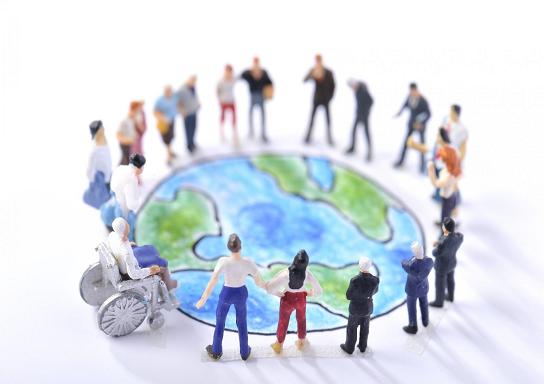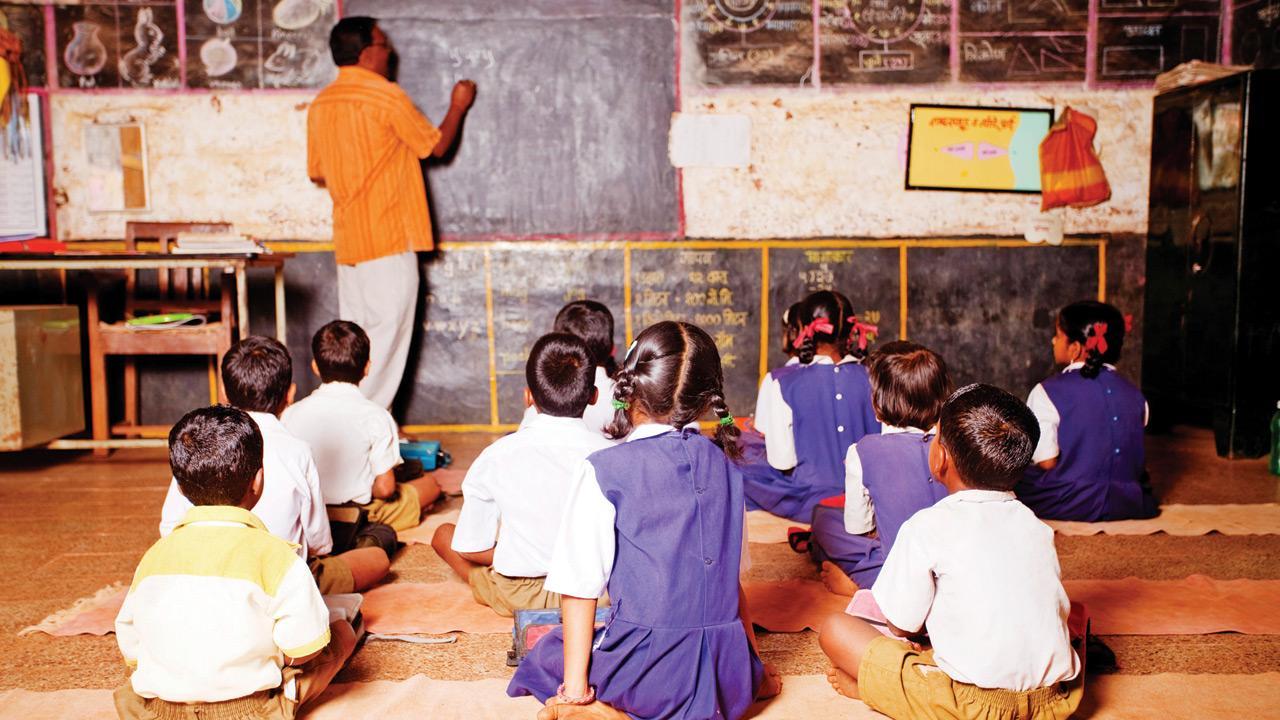A study on Education & Society
Name: Mayur Gangawane
Subject: Basics of Education
Subject In-charge: Dr. Geeta Shinde & Mr. Mahesh Mali
Course: MA Education (1st Year)
Department: Department of Education & Extension
Education & Society
Introduction
Society
Society is known as " Web of relationship", it is an important aspect of our lives which helps us understand human behavior & the institutions in which it operates.
Understanding Society
Society is a ‘web of relationship’ and these relations are fundamental for understanding human behavior and different institutions of society. You must be aware about different forms of relations in your family, community and society.
As we know different forms of relations in the family, community & society, like within family we have relations like mother, father, son, daughter. husband, wife, brother, sister; these are know as primary relations, secondary relations includes our aunts, uncle etc. and the tertiary relations include those with the neighbors, friends etc. the social relations can be understood with our role & status in society.
Role can be defined as set actions one perform regularly in society, an individual daily performs multiple roles in various institutions of society, as the social context changes the role of an individual changes based on its position in society, this position is termed as social status.
We see that role & status in society are governed by the societal norms & values, these norms & values are an unwritten constitution of any society, therefore to understand any society these parameters must be thoroughly studied.
Education
Education can be seen as a parameter through which we can gauge the overall development of any region, it is the foundation of society which helps to develop economic wealth, social prosperity & political stability.
What is Education?
Education is generally seen as the foundation of society which brings economic wealth, social prosperity and political stability. It is a major aspect of development of any modern society and most significant indicator of overall development of any region.
Emile Durkheim, a French sociologist argued that the schools were essential for 'imprinting' shared social values into the minds of children. He believed schools would play a vital role in forming of modern societies.
Similarly John Dewey, an educationist gave importance to the necessity of combining education with the practical life of the child, he believed if the child is alienated from the real circumstances of life there is no education at all. The fusion of psychological & sociological aspects of education is the greatest contribution Dewey made to education.
He states that school is a miniature reflection of society rather than individual, therefore schooling process & schools main objective should be to foster growth of social progress & expansion of democracy.
/GettyImages-577681457-579a414e3df78c32762ce5de.jpg) |
| John Dewey |
Importance of Education in social context
Mediation between Cultures
Mediation between Cultures
One of the most important role for which education is utilized is for bridging the gulf between generations, it transmits the tradition, culture, skill & knowledge to the new members of society, which also tells us why culture is one of the most important linkage between society & education. To understand this linkage more precisely we can look at what E.B. Taylor, British social anthropologist said about culture
"A complex whole which includes knowledge, belief, art, law, morals, customs & any other capabilities & habits acquired by man as a member of society"
To reduce inequality & Disparity
Education plays a significant role in solving problems of society. Education is a process through which one is empowered by gaining knowledge & wisdom. United Nations in their Millennium Development Goals (2000), focused on eight goals two of which are very relevant to this topic i.e. to achieve universal primary education for all & to attain gender equality. Rabindranath Tagore rightly said:
“In finding the solution to our problem, we shall have helped to solve the world problem as well....If India can offer to the world her solution, it will be a contribution to humanity.”
Development of any region is directly proportional to its educational status, these two are symbiotic to one another, one can say besides education, health and economic status are the statistical parameters through which development of a region could be distinguished.
Social mobility and social change:
Social groupings is a universal & social fact, whereas social mobility denotes the change in an individual's social status based on its group's position in the social hierarchy of any society, this mobility is based on two characteristics i.e. education & income status. This is tackled my many nations by providing free and compulsory education to all.
Development of new knowledge
Education for me is a process through which one attains knowledge & success in life, I believe education is a continuous improvement process, one can never say he had no development by attaining or knowing a particular topic, because education helps us to create a new knowledge or it adds up to the existing one which makes us become a more enhanced human being. We can confirm this from our history, the development of man from a simple savage society to the present post modern society one can imagine how did we reach so far, I think it was our tenacity to survive & our quest for continuous improvement one can observe radical changes and groundbreaking inventions and discoveries which led the pathway for the humans to survive & conquer this planet.
Individual Development
Education is very important for an individual’s success in life. Education provides pupils teaching skills that prepare them physically, mentally and socially for the world of work in later life. Higher education helps in maintaining a healthy society which prepares health care professionals, educated health care consumers and maintaining healthy population. If there is a deficit of educated people then society will stops its further progress.
Therefore, we can see the role played by the education process towards society as a whole. Here, Education system included all forms including formal, informal and non-formal education. The combination of these forms may vary with time and space. Informal education process is the oldest form and its existence is as long as society itself. Formal and non-formal are plays later development. Informal education is characterized with changed relationship between learner and teacher in informal learning context, while the goals of informal education are always rooted firmly in value system. It has no direct concern with degrees or diplomas and supplements both formal and non-formal education. All these forms of education not evolved uniformly in different parts of the world.
Education and society have close association since inception of society itself. On the one hand, education prepares individual to perform different social roles in society, whereas on other hand, society and culture decides the characteristics social circles and education. Each society, from simple to the complex one, has its own system for uplifting & empowering their young generation based on these the various social institutions are developed.
For more information on this subject you go through the bellow reference material:






Comments
Post a Comment